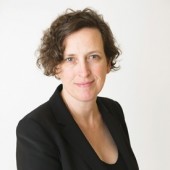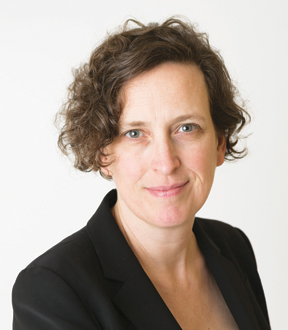On Reclamation | Editorial
When you think about climate change, what do you feel? I asked my daughter, Harper, who is ten, that question last month. The exercise was part of a talk at a Drawdown Learn event held at the Omega Center for Sustainable Living. Despite how often we discuss the climate, this was the first time I had actually asked her that. Her answer was not surprising, but it was painful to hear. “I get this bad feeling in my gut,” she said.
The future is our responsibility, and opportunity
 When you think about climate change, what do you feel? I asked my daughter, Harper, who is ten, that question last month. The exercise was part of a talk at a Drawdown Learn event held at the Omega Center for Sustainable Living. Despite how often we discuss the climate, this was the first time I had actually asked her that. Her answer was not surprising, but it was painful to hear. “I get this bad feeling in my gut,” she said.
When you think about climate change, what do you feel? I asked my daughter, Harper, who is ten, that question last month. The exercise was part of a talk at a Drawdown Learn event held at the Omega Center for Sustainable Living. Despite how often we discuss the climate, this was the first time I had actually asked her that. Her answer was not surprising, but it was painful to hear. “I get this bad feeling in my gut,” she said.
I was at Drawdown Learn to take part in a panel on libraries and sustainable thinking with New York Library Association Sustainability Initiative (NYLA SI) peers Matthew Bollerman, Geoffrey Kirkpatrick, and Rebekkah Smith Aldrich (LJ’s sustainability columnist). I was glad I arrived early enough to hear the talk by Renee Lertzman, a psychologist who focuses on climate change and author of Environmental Melancholia (Routledge, 2015), because she was addressing how to deeply engage in a big problem together, one many may not want to face due to how daunting or frightening it is. One fundamental step is to acknowledge and address the ambivalence that can result from needing to reckon with a “hard truth,” such as the reality of the climate catastrophe we now face. “Ambivalence is the big factor in our work,” she noted. “How we will work with it” is everything.
Drawdown Learn is an extension of Project Drawdown, a nonprofit research organization founded in 2014 by environmentalist Paul Hawken. An antidote to apathy, the organization envisions a positive future, where global warming can be arrested and we collectively arrive at drawdown, defined by the organization as “the point when greenhouse gas levels in the atmosphere start to decline.”
The project may be familiar to libraries in New York that participated in a NYLA statewide read of Drawdown: The Most Comprehensive Plan Ever Proposed To Reverse Global Warming (Penguin, 2017). The book, a product of intentional optimism, compiles the known available strategies and technologies to achieve drawdown.
At Drawdown Learn, Chad Frischmann, VP and research director for the project, oriented the audience to the tools we need to succeed: a community aligned to the goal, multidisciplinary collaboration to create solutions, research focused on finding pathways forward, and, of course, the will to implement what we can as quickly as attainable.
This insight into positive possibility caught my daughter’s imagination, and, she noted, the bad feeling was gone. She had ideas to share with her school principal, a plan starting to form. Her instinct to act echoes the many youth voices we hear today on climate.
Later, on the panel, I was asked to reflect on why I focus as much as I do on leveraging libraries to foster more resilient communities, with an eye to addressing human-sped climate change. The word I needed didn’t come to me then, but it is the driving force for me: reclamation.
I’ve always thought about this word in terms of environmental reclamation, having grown up in several places where I witnessed the degradation wrought by mining practices that left toxins behind, squelching the living ecosystem. Investment in reclamation was hard won, and doing it was hard. Where that reclamation work has happened—and I was awed by my mother’s efforts in North Idaho decades ago—it has transformed the landscape, enabling plants and animals to live, fish to return. In short, it worked. It also seemed like it would never do so when the work got under way. I’m keenly aware of the time it took, and that to happen, it had to be undertaken.
Now, I am also thinking about reclamation of personal and political agency. We are in the fight of our lives, and for the lives of the generations that follow. We can’t be ambivalent, even if we are afraid, or doubtful, or want to evade the issue and do something else. We can give a nod to the bad feeling in our guts and move forward. We must find a way to take hold of the tools we have to make a difference.
Libraries, as a network focused on caring for the resilience of our communities, are poised to change the game. A belief that we can make a significant difference is at the root of my commitment to library-led sustainable thinking, for today and, most critically, for the tomorrows far beyond.


RELATED
ALREADY A SUBSCRIBER? LOG IN
We are currently offering this content for free. Sign up now to activate your personal profile, where you can save articles for future viewing









Add Comment :-
Comment Policy:
Comment should not be empty !!!
Cindy Maxey
Thank you for this article. I'll read Drawdown. Along with reclamation, we need to develop a vision and plan for living sustainably and well in a world already changed by excessive carbon in the atmosphere. We need to make big changes and do so thoughtfully rather than reactively. How will we work and live? How will we look out for each other? How will we find joy?Posted : Nov 05, 2019 09:01